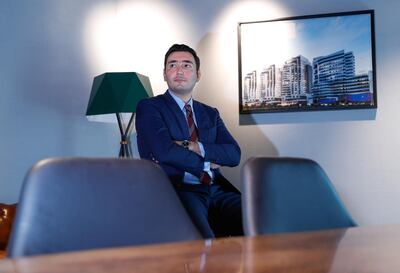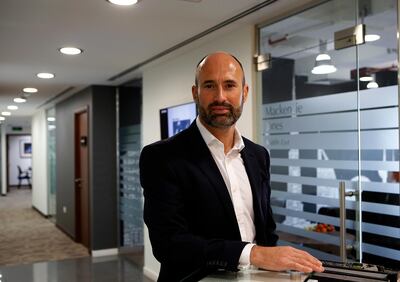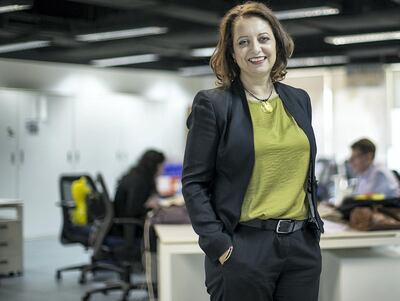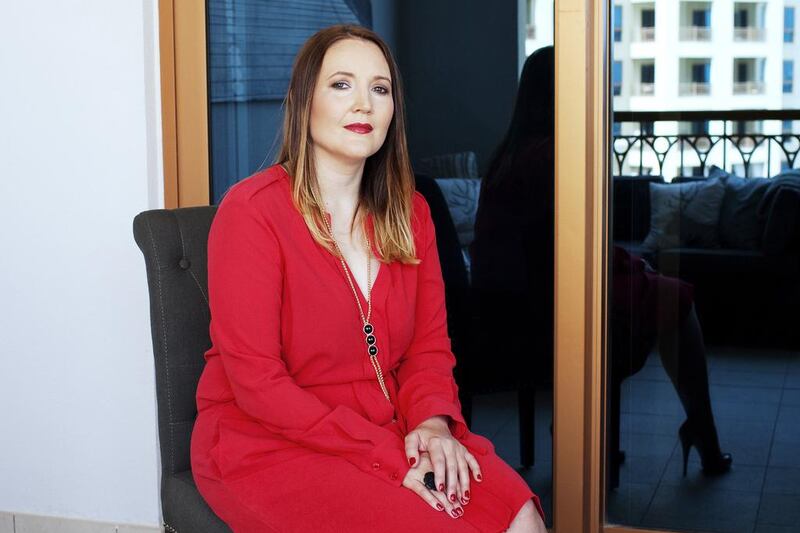Business owners are keen to apply for the UAE’s new five and 10-year residence visas when they come into force, as the country changes from being a transient posting for residents and employees.
Briton Natasha Hatherall, the founder of the PR agency Tish Tash, says a longer-term visa would make her feel "more secure and confident in living in the UAE" after investing so much "time, money and love in the country".
“I’ve lived in the UAE for nine years and had my own business for seven years. My husband has lived here for 18 years and had his own business for over 10 years. Our lives are here, we own our own home here, so having a longer-term visa is the next natural step for us,” Ms Hatherall said. “This would give us some more security and peace of mind.”
Investors, entrepreneurs, executives, outstanding students, retirees and specialists working in medicine, science or research will be entitled to stay in the country for up to 10 years as part of the plan, which was approved by the UAE Cabinet in May.
The government wants vital professionals to stay in the Emirates longer to make the UAE competitive as it looks to change into a knowledge-based economy and away from relying on oil and gas.
____________
Read more:
Is the UAE's new five-year visa a game changer for expat retirement?
UAE economy growth drives 'war on talent' for tech professionals
Is the UAE end-of-service gratuity set for an overhaul?
Retiree visas: wills and property firms expect surge in demand from older residents
_____________
Sara Khoja, a partner in the employment team at law firm Clyde & Co in Dubai, says the 10-year visa is “a significant development" as it gives people a chance to establish themselves in the country and will see the Emirates evolve from being a destination which people move to for only two or three years.
“This has already started to happen, with more and more individuals staying for five years and more, as the UAE has provided a stable and safe environment for individuals to work and base their larger corporate operations from. The availability of more long-term options will enhance this position," Ms Khoja adds.
Entrepreneur Orkhan Mustafayev, the president of Ideal Concept Holding, a group of companies in construction, retail, advertising and fast-moving consumer goods, moved to Dubai in 2006 to study at the American University. He says he would “love to apply” for a longer-term visa.
“It would help me plan for a further 10 years, especially as my children are getting older and their studies are a priority. My wife and I don’t want to disrupt their studies by moving country,” says Mr Mustafayev, from Azerbaijan. “[When I first moved here] I remember visas being a long process, requiring regular renewals, and being costly once my studies were over. A 10-year visa gives assurance and stability, particularly for business owners like myself, who bind themselves to the UAE.”
ServiceMarket, an online home services marketplace, says the main purpose of long-term visas is to boost business growth in the UAE. The company believes this will be achieved by driving more investment into the economy as investors stay longer. The measure will help add to banks' coffers because retirement savings will not be transferred overseas and will boost the knowledge economy with a “brain gain” from the visas offered to specialists and outstanding students.
"We're likely to see more initiatives like the recently launched UAE Platform for Scientific Laboratories, Emirates Smart Data Centre, a large-scale Artificial Intelligence platform, and Mohammed Bin Rashid Space Centre in the years to come," Obed Suhail of ServiceMarket.com said.

Ms Khoja says the visas for investors and entrepreneurs would potentially attract more high net-worth individuals to base themselves in the UAE and to run their business operations.
“For those with specialist skills, it will provide more security to establish long-term careers in the UAE and potentially encourage more businesses to base specialists in the region and build up their corporate hubs for the Middle East and Africa,” she says.
As well as business owners, Ms Khoja says the UAE's profile has increased globally making it a more attractive place for people to work and live – something that will make "the local labour market more competitive".
Rasheda Khatun Khan, a wealth planner and the founder of Design Your Life, says keeping talent in the UAE requires “forethought and strategy”.
“This starts with the foundations of a company and its culture in taking care of employees. If companies now have a longer-term approach to their businesses here, I think it will have a knock-on effect on longer-term retention,” she says.

However, David Mackenzie, managing director of the GCC recruitment consultancy Mackenzie Jones, says the type of companies based in the UAE has changed over the last four years.
“Dubai was often seen as the head office hub for the wider GCC and Africa but this has changed with a lot of the senior shared office functions (HR, finance, marketing etc.) now moving to cheaper jurisdictions,” he says.
As the UAE market starts to expand again, the past's proven success of attracting senior talent is more challenging moving forward with the allure of Singapore and Europe, two markets that are starting to retain their talent, Mr Mackenzie says.
"The UAE has lost none of its appeal but a considerable number of senior people either left, lost their jobs or were relocated,” he adds. This means recruiters are looking to hire “a different type of person these days...gone are the families with two kids and the dog. Now we are bringing in either single or young families who don’t initially have the burden of school fees,” Mr Mackenzie says.
That trend could change again once the long-term visas come into play, says Abdul Nadir Faizal, co-founder of real estate crowdfunding platform, Smart Crowd.
“As the visa has many conditions, for certain individuals the UAE will always be a transitional post. However, for other individuals, especially expat families, it will lose that tag line of a transitional posting and move to a mid to long-term posting of 10-15 years,” he says.
One sector certainly set to benefit is real estate, as some visas allow for a certain holding of property to qualify.
“This will create new demand in the market as international investors will see the UAE as an attractive option to invest in as it provides long-term residency and will put it on par with other countries that offer residency, like St Kitts and Nevis and Portugal,” says Mr Faizal.
__________
Read more:
Retiree visas: wills and property firms expect surge in demand from older residents
New to the UAE guide: set-up costs, visas, rent, school fees and more
New to the UAE guide part 2: banking, saving, investing and sound financial advice
A fifth of UAE expatriates doubled their salary when they relocated
_________
Although the signs are positive, Ms Khoja says it will take time for expatriates to adopt a “long-term approach” to the UAE.
“This will gradually happen as these visas begin to be granted. However, it won't be immediate and it will likely require people to see how the visas work in practice,” she says.
Ms Hatherall, for example, is concerned about the costs involved.
“Some of the figures I heard being rumoured were quite high and that may mean it’s not possible for me,” she says.

However, analysts say the longer-term options have their limitations.
“The reality behind the 10-year visa means you are still tied to your employer,” says Mr Mackenzie.
And although Mr Mackenzie says the visa shows “the UAE is listening and looking at alternative solutions” to attract new residents, he does not believe it will alter their long-term view.
“People are more focused on the cost of living here and the stability of their current roles. Will it bring more people here? Unlikely, as people look for the combination of salary, quality of living and family life,” he says.
Keren Bobker, a partner with financial advisory Holborn Assets, agrees: “I don’t think these visas will make a difference to the average expat who moves to the UAE and is sponsored by an employer. They seem to be aimed at those looking to set up businesses, and larger businesses at that, to encourage their commitment to stay for an extended period."







